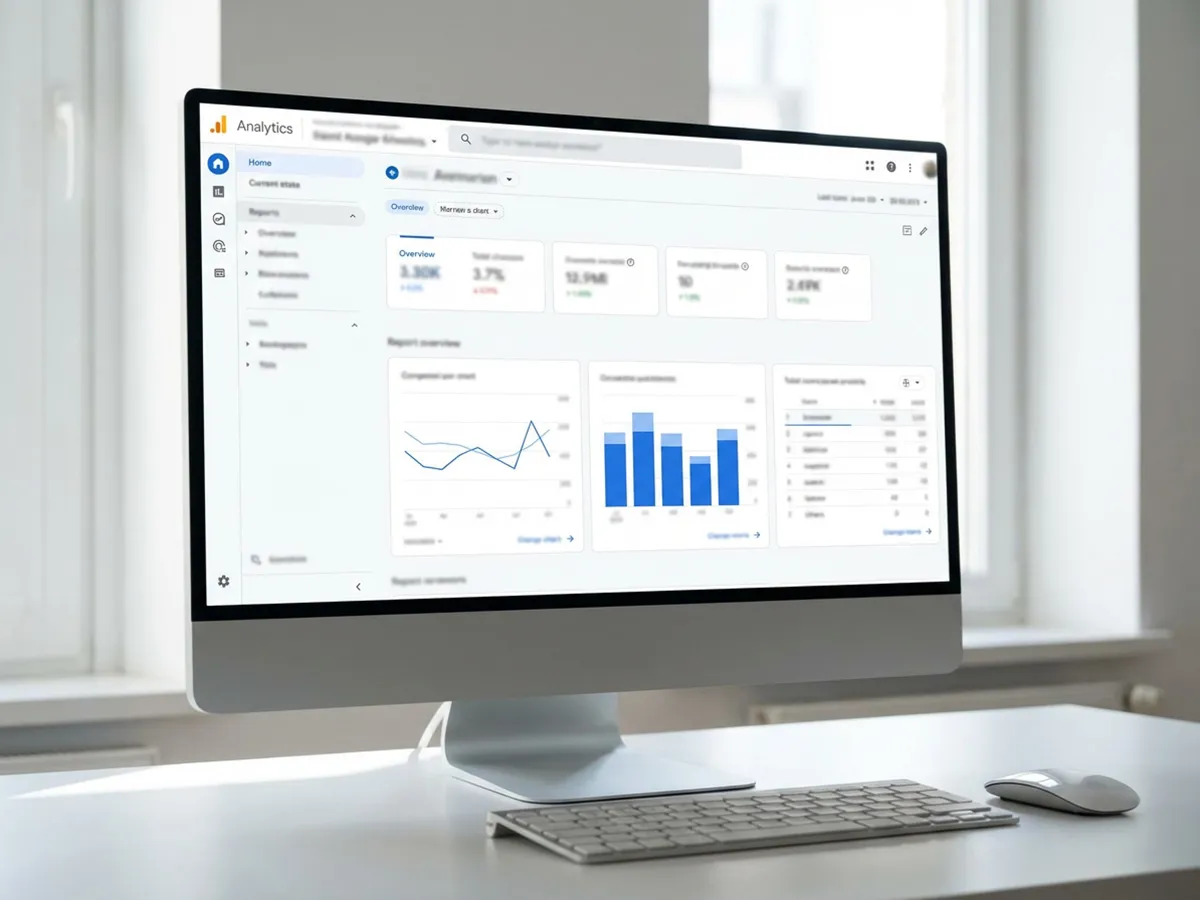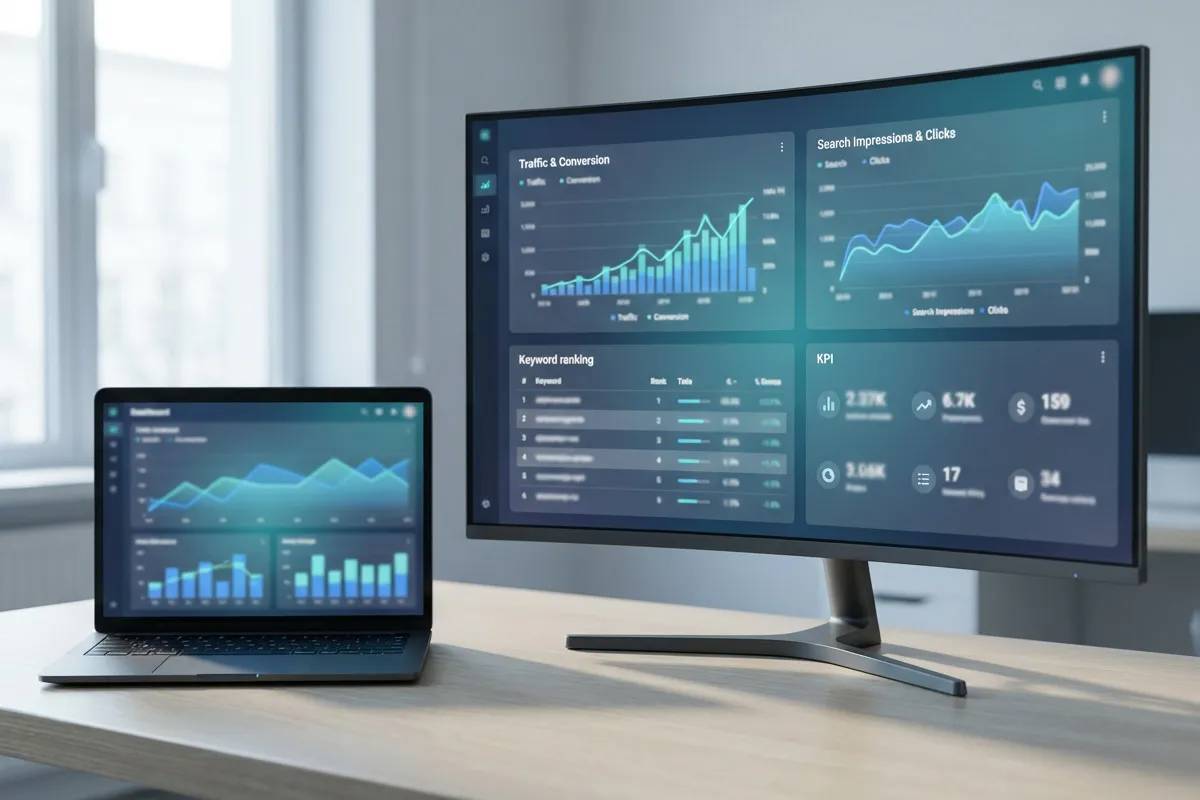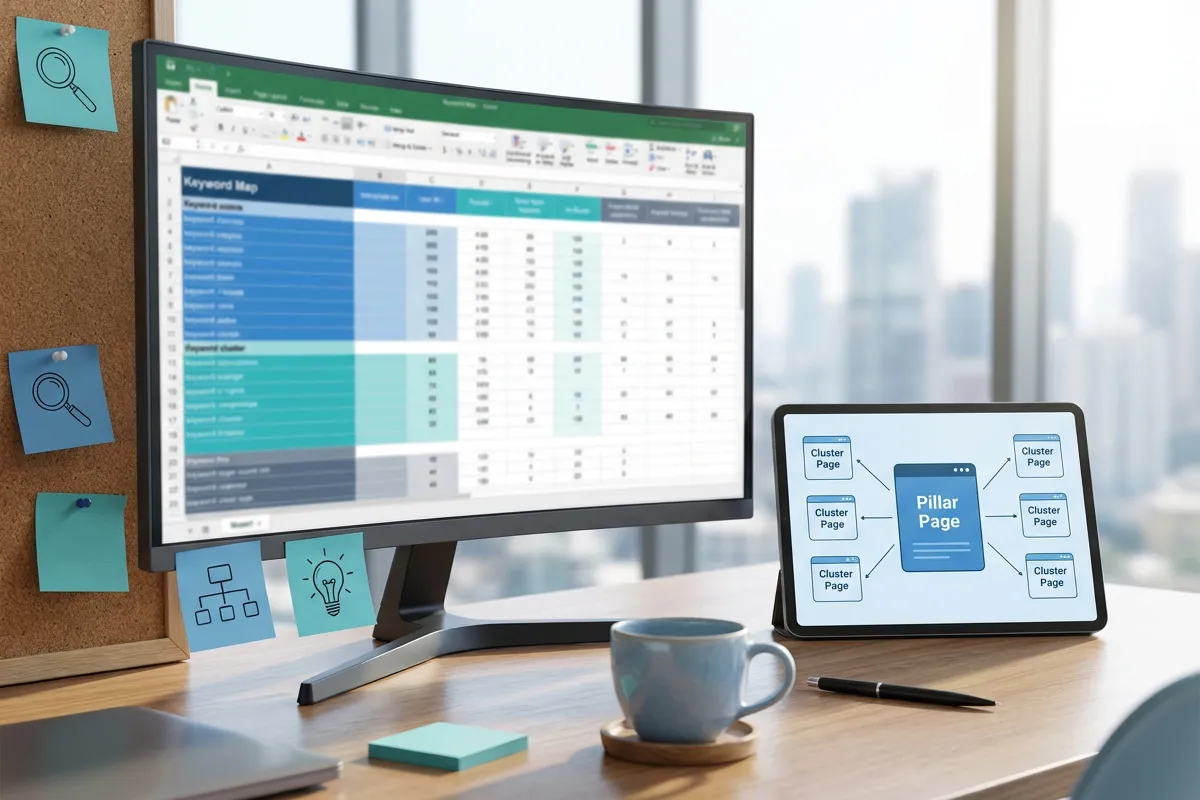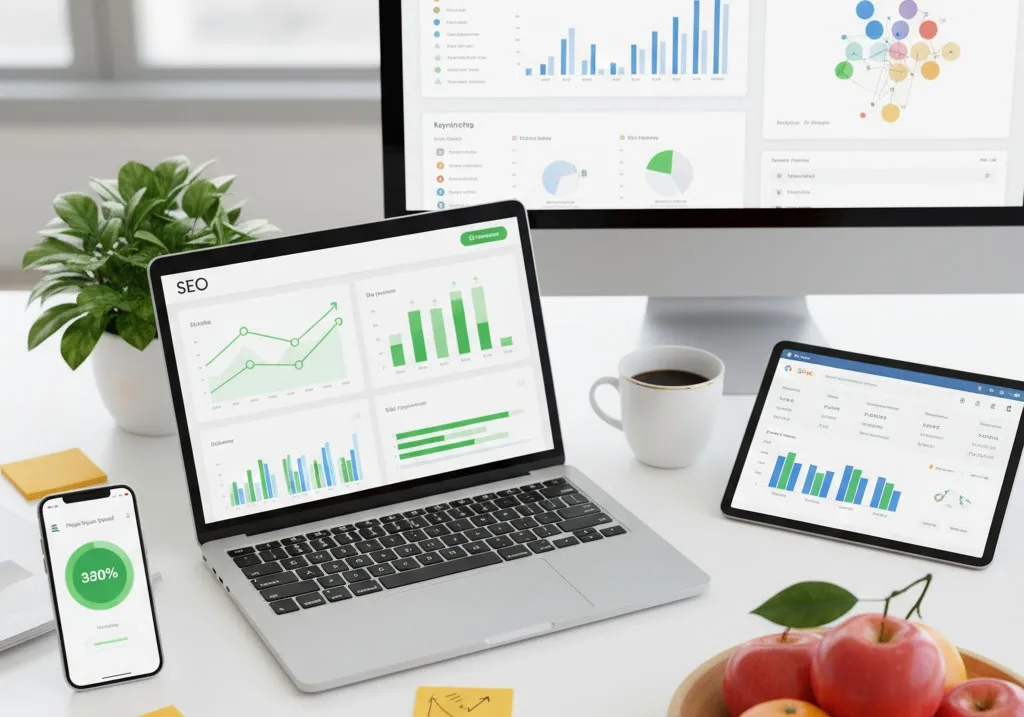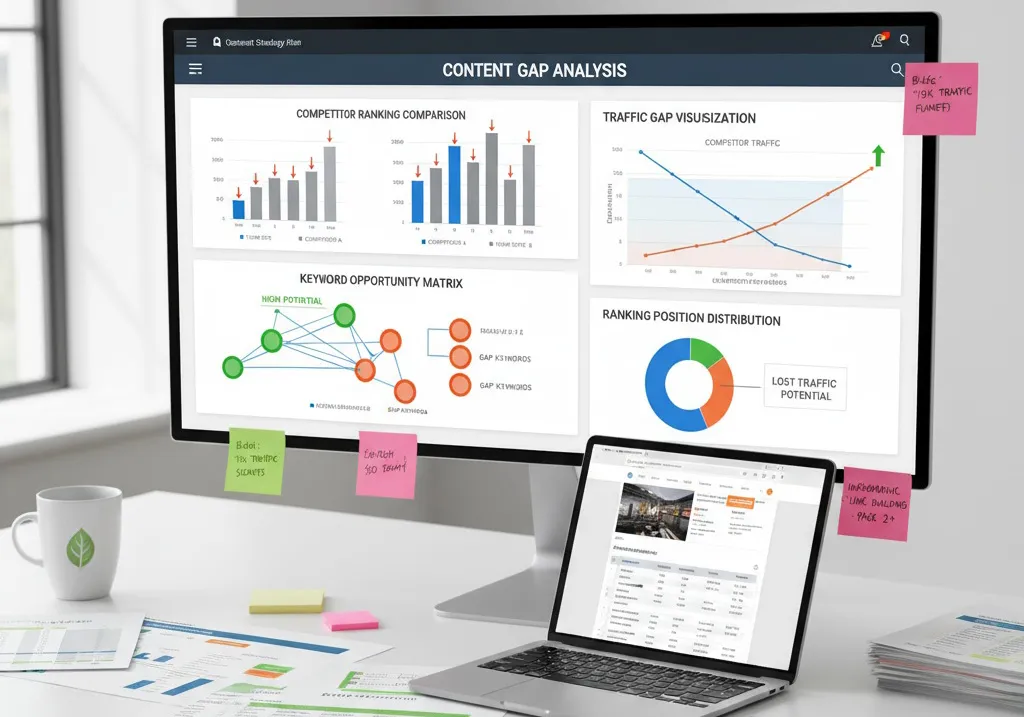Local SEO is a critical strategy for small businesses aiming to increase visibility in specific geographic areas. As more consumers turn to search engines for nearby services, optimising for local search is no longer optional—it’s essential. This guide provides a structured overview of local SEO, its benefits, and the key steps required to build an effective local marketing strategy.
By mastering local SEO, small businesses can improve their online presence, attract more foot traffic, and enhance customer engagement. This guide targets essential elements like Google Business Profile optimization, local keyword targeting, and citation management. Whether you’re just getting started or looking to refine your existing approach, this article outlines actionable steps to enhance your local marketing performance and drive meaningful results.
Why Local SEO Matters for Small Businesses
Local SEO plays a vital role in connecting small businesses with nearby customers who are actively searching for specific products or services. Unlike broader SEO strategies, local SEO focuses on improving visibility in local search results, which significantly impacts foot traffic and sales. For businesses like restaurants, law firms, medical practices, or retail shops, ranking in local search is crucial.
When optimised correctly, local SEO ensures your business appears in Google’s Local Pack, Maps, and localised search queries. This visibility increases your chances of being discovered by users who are ready to make a purchase decision, which directly supports business growth and brand recognition within your community.
Setting Up and Optimising Your Google Business Profile
One of the most effective tools for local SEO is a well-optimized Google Business Profile (formerly Google My Business). This free listing allows your business to appear in local search results and Google Maps. Start by claiming your business profile and ensuring that all essential information—name, address, phone number (NAP), business hours, and website—is accurate and consistent.
Enhance your listing with high-quality images, select relevant business categories, and use keywords related to your services and location. Regularly update your profile with new posts, promotions, or customer updates. Also, encourage satisfied clients to leave reviews, as they contribute to your credibility and impact local ranking factors.
Local Keyword Research
Effective local SEO begins with precise keyword research. Focus on terms that potential customers in your area are likely to use when searching for your services. Tools like Google Keyword Planner, SEMrush, and Ahrefs can help identify relevant keywords with high local intent. Examples include “plumber in [town]” or “best Italian restaurant near me.”
Once you identify key terms, incorporate them naturally into your website content, meta titles, descriptions, and Google Business Profile. Prioritise location-specific phrases that reflect how your audience searches. This approach ensures your website aligns with local user behaviour and ranks higher in relevant searches.
Creating Content Optimised for Local Search
Local content helps establish your business as a trusted authority in your area. Develop blog posts, service pages, or landing pages focused on local events, news, or customer success stories. This content should integrate location-specific keywords and provide value to your target audience.
Additionally, creating town or neighbourhood landing pages can further boost local SEO performance. These pages should include tailored content, unique headlines, and consistent branding. By doing so, your website becomes more relevant to localised searches, increasing its chances of ranking for key queries in your service area.
Building Local Citations and Ensuring NAP Consistency
Citations are online mentions of your business name, address, and phone number (NAP) on directories and websites. Consistent NAP details across all platforms help build trust with search engines and reinforce your business’s legitimacy. Inaccurate or outdated information can confuse both customers and search engines, negatively affecting your local rankings.
Start by listing your business on authoritative directories such as Yelp, Bing Places, and industry-specific platforms. Use the exact same format for your NAP on every site. Tools like Moz Local or BrightLocal can streamline citation management and help track inconsistencies. Regular audits ensure your information remains accurate and up to date.
Gathering and Managing Online Reviews
Reviews are an important factor in local SEO and influence consumer trust. A business with a high number of positive reviews often ranks better and attracts more customers. Encourage satisfied clients to leave feedback on your Google Business Profile and other relevant platforms like Facebook or Trustpilot. One of the ways we have found to reduce the “friction” with clients when requesting reviews is to make it as simple as possible for the customer. It is worth preparing QR codes for all your main review platforms and putting these QR codes on all printed materials. We have also found that sending clients direct links to leave a review increases the chances of clients spending the time leaving a review for you. Our most successful strategy has been for tradespeople and building contractors. They carry an inexpensive tablet in their vehicle, which has all their review pages open and ready to go. The client can leave a review there and then = when they are at their most grateful to you for solving their problem, whatever it was!
Respond to all reviews—positive or negative—in a timely and professional manner. Thank users for their input and address concerns constructively. This not only improves your reputation but also signals to search engines that your business is active and engaged with its customers.
Mobile Optimisation and Local SEO
Most local searches occur on mobile devices, making mobile optimisation critical to a successful local SEO strategy. A mobile-friendly website ensures that users can easily navigate, read, and interact with your content without delays or formatting issues. Google also prioritises mobile usability in its ranking algorithm, particularly for location-based searches.
To optimise for mobile, make sure that your website is responsive and adapts to various screen sizes, compress images for faster loading, and simplify your navigation menu. Ensure your click-to-call buttons, maps, and contact forms are easily accessible. A smooth mobile experience enhances user satisfaction and helps retain visitors, increasing your chances of converting them into customers.
Local Link Building Strategies
Backlinks from reputable local sources signal to search engines that your business is credible and locally relevant. Start by reaching out to local news websites, blogs, chambers of commerce, or business associations to secure mentions and links. Participating in community events or sponsoring local causes can also lead to link opportunities from partner sites or event listings.
Guest posting on local blogs or being featured in area-specific directories also strengthens your link profile. Focus on earning high-quality backlinks from sources within your geographic area, as these links carry more weight in local SEO than general backlinks.
Tracking Local SEO Performance
Monitoring your local SEO performance helps determine which strategies are effective and where adjustments are needed. Use tools like Google Analytics, Google Search Console, and Google Business Profile Insights to evaluate metrics such as traffic sources, keyword rankings, and user engagement. These insights allow you to make data-driven decisions for ongoing optimisation.
Pay attention to metrics like local search impressions, click-through rates, and conversion rates. Also, track review volume and response time, NAP consistency across citations, and your position in local search results. Regular performance reviews ensure your local marketing efforts stay aligned with your business goals and customer behaviour.
Common Local SEO Mistakes to Avoid
Several common mistakes can hinder your local SEO results. These include inconsistent NAP details, neglecting mobile optimisation, overlooking Google Business Profile updates, and failing to engage with customer reviews. Ignoring these elements can lead to reduced visibility and lost business opportunities.
Avoid duplicate listings, keyword stuffing, and purchasing low-quality backlinks. Instead, focus on building a strong, trustworthy online presence with accurate information, valuable content, and a customer-focused approach. Correcting these errors early can significantly enhance your local search performance and long-term success.
Mastering Local SEO is essential for small businesses aiming to improve their visibility, attract local customers, and stay competitive in their market. From optimising your Google Business Profile to building local citations, creating location-focused content, and engaging with customer reviews, every step contributes to a more effective local marketing strategy.
A consistent, data-driven approach ensures that your business not only ranks well in local search results but also builds trust with your target audience. By avoiding common mistakes and staying current with best practices, small businesses can leverage local SEO to support sustainable growth and stronger community presence.



